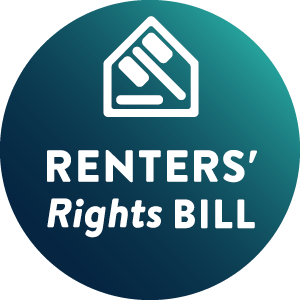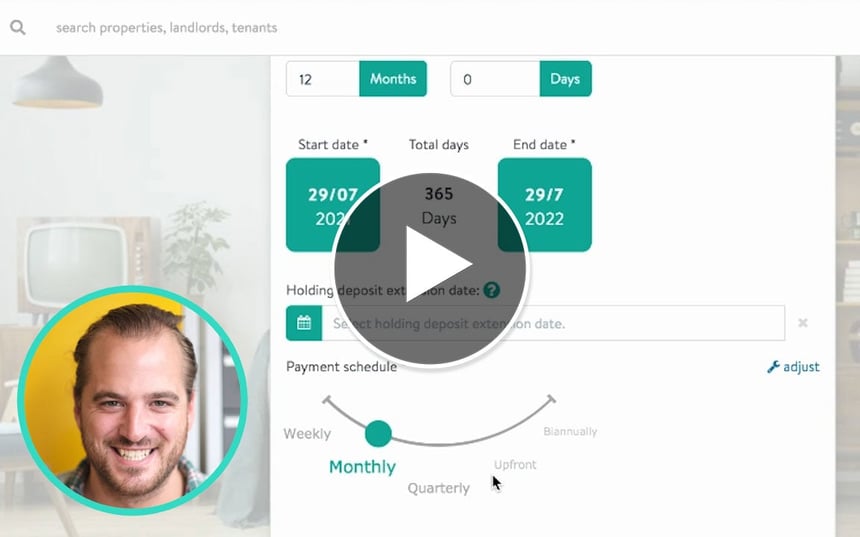King's Speech 2024: Key takeaways letting agents should know
The King's Speech marks the State Opening of Parliament where the key focuses for the government are outlined. Here's everything letting agents need to know.
This year, the King will open parliament with a speech that outlines the government's priorities for the year ahead. Following the general election in July, this will be the first King Speech created by a Labour Government in 14 years.
With approximately 35 bills mentioned in the King's Speech, the Labour Party plans to achieve a lot during their time in parliament. Here are the key things letting agents need to know from this speech:
The Renters' Rights Bill
The Renters' Rights Bill looks to be Labour's version of the Renters (Reform) Bill, which did not pass through Parliament before the end of the Conservative Government.
This new legislation will look to provide a "functioning sector to those who want it, and a secure stepping stone for aspiring homeowners".
The Renters' Rights Bill will look to end the exploitation of renters by landlords and overhaul the private rental sector. This bill will apply to England.
This bill will look to cover policies such as:
- Abolishing Section 21 - with new clear and expanded possession grounds so landlords can reclaim their properties when they need to.
- Strengthening tenants' rights and protections - by giving tenants the power to challenge rent increases and end the practice of rental bidding wars.
- Pets in lets - landlords must consider and cannot unreasonably refuse a tenant having a pet in their rental property. However, landlords can request insurance to cover any potential damage a pet might create.
- Decent Homes Standard for the private rental sector
- Applying 'Awaab's Law' to the sector - with clear legal expectations and timeframes for landlords to adhere to.
- A digital private rented sector database - putting together information for landlords, tenants and councils all in one place.
- Supporting quicker and cheaper resolution for disputes within the sector - the introduction of a new ombudsman service to provide "fair, impartial and binding resolutions" to landlords and tenants.
- Making it illegal for landlords to discriminate against tenants who receive benefits or have children
- Strengthening local council's enforcement powers - making it easier for councils to identify and find rogue landlords and drive them out of the sector.
English Devolution Bill
King Charles III mentioned Labour's plans to introduce the 'English Devolution Bill' which will provide new powers to metro mayors and local authorities.
This Bill aims to help support "local growth plans that bring economic benefits to communities", and focuses on the party's plans to reinforce growth and stability within the UK.
The English Devolution Bill will create a new framework for England, moving power out of Westminster and "back to those who know their areas best".
Labour will look to give local leaders more power to drive growth in communities by:
- Creating a more ambitious standardised devolution framework into legislation - giving local leaders more power over strategic planning, local transport networks and improving living standards.
- Making devolution the default setting - local leaders will be able to formally request additional powers according to a framework
- Making it easier to provide devolved powers quickly to more areas - creating new Combined and Combined County Authorities
- Improve and unblock local decision-making - through more effective governance agreements that mayors and Combined Authorities will have the ability to deliver for their areas
- Empower local communities - a new 'right to buy' for valued community assets such as empty shops, pubs and community spaces to revamp high streets
A draft of the Leasehold and Commonhold Reform Bill
The Leasehold and Freehold Reform Bill was passed on the final day of the Conservative Government. However, despite the bill passing, there are still serval question marks on how it will be actioned and implemented.
Labour will soon publish draft legislation that will aim to provide homeowners with greater rights and powers over their homes.
The party plans to further reform leaseholds and freeholds while also implementing the Leasehold and Freehold Reform Act 2024.
The Government first mentioned plans to bring leasehold systems to an end in its manifesto. However, following the King's Speech, further details on how this will be done were released.
This includes:
- Reinvigorating commonholds
- Tackling existing ground rents
- Enacting remaining Law Commission recommendations
These reforms will extend and apply to England and Wales
👑 Download our guide to the King's Speech 2024 here 👑
Planning and Infrastructure Bill
The King's Speech and Labour Manifesto focused on the theme of growing the United Kingdom, and the Planning and Infrastructure Bill further showcased this.
As mentioned in King Charles's Speech: “My Ministers will get Britain building, including through planning reform, as they seek to accelerate the delivery of high-quality infrastructure and housing”
The Planning and Infrastructure Bill plans to make improvements to the planning system at a local level while accelerating housebuilding and infrastructure. Labour plans to achieve this through:
- Improving local planning decision-making - through modernising planning committees
- Increasing local planning authorities’ capacity
- Streamlining the delivery process for critical infrastructure
This bill will be applied to England and Wales, with some aspects also applying to Scotland.
Find out more
This article is intended as a guide only and does not constitute legal advice. For more information, visit gov.uk.













